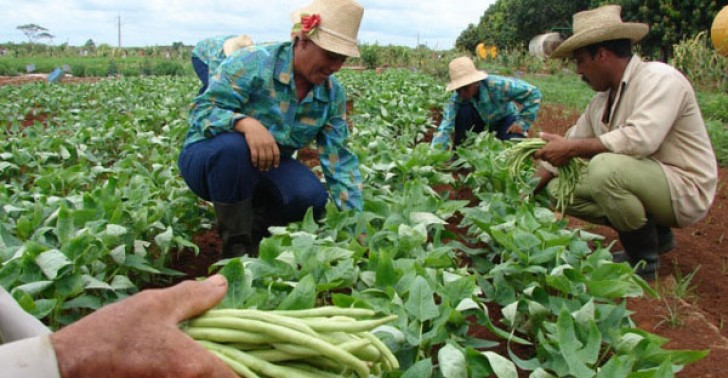
Investment Law: Yes to cooperatives and foreign capital
HAVANA, March 25 –(Progreso Weekly)– Non-state cooperatives may associate with foreign capital, the Cuban TV station announced on its noon newscast today. I leaped out of my chair and dove for the remote to boost the volume.
The announcer read the statement while the screen showed images of a meeting of members of the Judicial Committee of the Cuban Parliament with national journalists. The foreign press was not invited.
I wish I had been present when attorney José Luis Toledo Santander, chairman of the committee, spoke. But the audio carried only the announcer’s voice. No matter, the announcement allows me to meditate and write the first notes on a topic that I have followed since 2006.
The decision that the non-state cooperatives can associate with foreign capital has great significance. It can give momentum to the development of important sectors, such as agriculture, a sector where the reforms instituted have not achieved the desired results.
I mention agriculture because I’m one of those who believe that if the agriculture doesn’t take off, the entire project of economic renewal will be in jeopardy. In Cuba, we need food. To make the earth produce in an efficient manner can energize the rest of the economy.
Experts in the agricultural sector attribute the noncompliance with plans and aspirations to the lack of capital and adequate technology, among other factors. A recent example is the case of potato production, where, for many years now, it has become impossible to meet the least demands of the population.
The scant availability of the Cubans’ favorite tuber is due to, among other factors, the lack of capital to purchase in the world market the so-called “technological packages” needed, as well as the highest-quality seeds.
“That’s a simple example of what the announced measure can mean,” said Cuban professor and academician Armando Nova, an expert economist specializing in the farm sector, when I mentioned that concern.
“We need capital and technology and this measure will facilitate both,” Nova opines, and he adds that it can also stimulate “production for the export market” with the consequent flow of hard currency into the country.
As I listen to him, I think that the non-state producers own at this moment 1 million 200 thousand hectares of land out of the 1 million 600 thousand hectares distributed throughout the country. The Credit & Service Cooperatives (CSS) and the Farm Production Cooperatives (CPA), both of them private, are the country’s most productive.
The access to foreign capital would increase their output and propitiate a leap to second-grade cooperatives through the development of agricultural food-processing industry.
Now, we can only wait until March 29, when the new Law on Foreign Investments will be approved by the Cuban parliament. Also, and very important, we can only hope that its regulations will be agile and liberating, capable of encouraging investors. Otherwise, we’ll be looking at a brake law.
Progreso Semanal/ Weekly authorizes the total or partial reproduction of the articles by our journalists, so long as source and author are identified.

